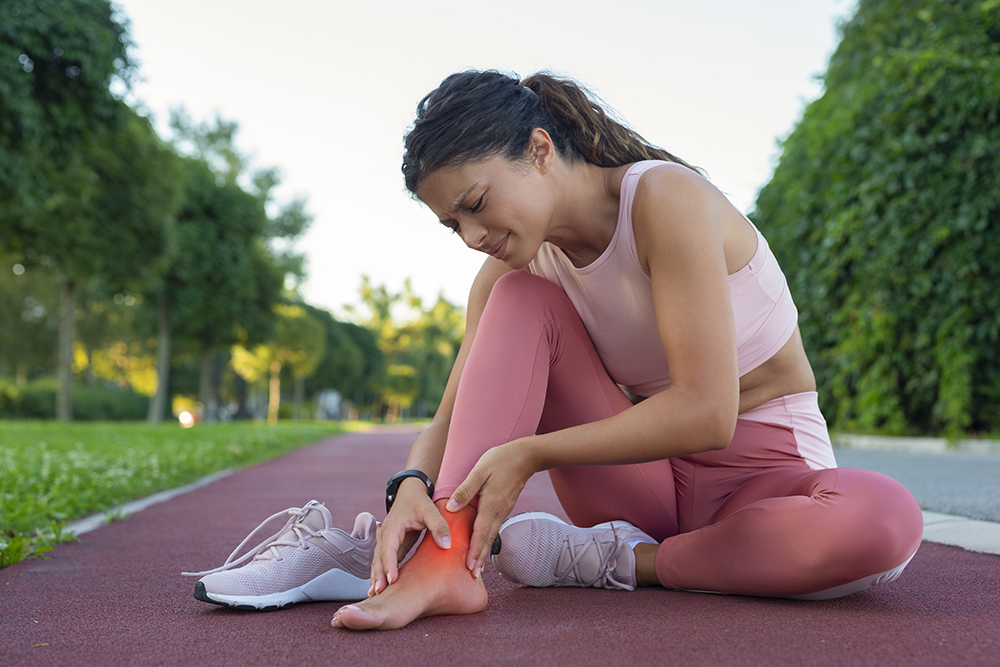How to Alleviate Heel Pain in Runners for Better Performance

Heel pain is a common challenge for seasoned and novice runners alike. It can arise from various reasons, such as overuse, improper footwear, or biomechanical issues. For passionate runners, this pain can be both physically limiting and mentally frustrating, disrupting training schedules and personal goals.
This blog explores the causes of heel pain, effective prevention strategies, and when to seek professional care. If you're based in Winter Park, FL, and need physiotherapy tailored to your needs, we’re here to help.
What Causes Heel Pain in Runners?
Understanding the root cause of heel pain is the first step in treating and preventing it effectively. Here are the primary culprits behind this issue:
1. Plantar Fasciitis
Plantar fasciitis, one of the most common issues among runners, happens when the ligament running along the bottom of your foot becomes inflamed. Symptoms include sharp pain under the heel, especially during the first steps in the morning or after long runs.
Why it happens:
- Overtraining without adequate recovery
- Tight calf muscles and Achilles tendons
- Poorly cushioned or worn-out running shoes
2. Achilles Tendinitis
Your Achilles tendon connects your calf muscle to your heel, and its overuse can cause irritation or inflammation.
Why it happens:
- Increasing training intensity too quickly
- Uphill running without proper warm-up
- Lack of proper stretching post-run
3. Heel Spurs
Heel spurs are bony growths that develop over time, often as a result of constant strain on foot muscles and ligaments.
Why it happens:
- Long-term plantar fasciitis
- Flat feet or improper foot mechanics
- Unsupportive footwear
4. Stress Fractures
These are tiny breaks in the heel bone that occur with repeated stress over time, often due to running long distances or high-impact training.
Why it happens:
- Lack of calcium or other nutritional deficiencies
- Poor training techniques
- Sharp increases in physical activity
How to Prevent Heel Pain
Prevention is always better than cure, especially for runners who depend on their feet for both fitness and relaxation. Try these strategies to reduce your risk:
Invest in Quality Running Shoes
Choose shoes that provide ample arch support, heel cushioning, and stability. Visit a store specializing in athletic footwear to ensure proper fitting and comfort when selecting your next pair.
Warm-Up and Stretch Before Running
Dynamic warm-up exercises, such as leg swings, heel raises, and lunges, can prepare your muscles, tendons, and ligaments for action. Incorporating post-run stretches helps reduce tightness, especially in your calves.
Build Gradually
Avoid high-mileage weeks without adequate progression. Increase your weekly mileage by no more than 10% every week to give your body enough time to adapt.
Incorporate Strength Training
Strengthening your calves, ankles, and core muscles provides stability to your foot structure. Exercises like calf raises, toe curls, and resistance band workouts can go a long way in preventing injuries.
Use Orthotics
Custom orthotics or inserts designed for runners can help support foot mechanics and absorb shocks, especially if you have flat feet or high arches.
Rest and Recover
Don’t ignore signs of overtraining. Schedule rest days, and practice active recovery by engaging in low-impact activities like swimming or cycling.
When to See a Physiotherapist for Heel Pain in Winter Park, FL
While minor heel pain caused by overuse or mild strain can often be managed at home, some symptoms signal the need for professional intervention:
- Persistent or worsening pain that doesn’t improve with rest
- Swelling or redness around the heel
- Difficulty in walking or running due to sharp pain
- Tingling or numbness in the foot
A physiotherapist can evaluate the underlying causes of pain and create a tailored treatment plan. Here’s what to expect during physiotherapy for heel pain:
Assessment of Biomechanics
Your physiotherapist will analyze your gait, running style, and foot mechanics to find patterns or irregularities that may be causing stress on your heel.
Personalized Exercise Programs
Stretching and strengthening exercises will be prescribed to improve flexibility and reduce tension on the plantar fascia, Achilles tendon, and other critical muscles.
Hands-On Therapy
Manual therapy techniques, such as deep tissue massage and myofascial release, may be used to promote healing, reduce inflammation, and improve mobility.
Advanced Treatments
Therapies like ultrasound, dry needling, or taping can alleviate pain and support your recovery.
Simple At-Home Remedies to Relieve Heel Pain
While professional care is essential for chronic conditions, you can also take immediate at-home action to reduce heel discomfort:
- Ice Therapy
Apply an ice pack to the affected area for 15-20 minutes several times a day to reduce inflammation.
- Foam Rolling
Use a foam roller or massage ball to release tension in your calves and plantar fascia.
- Night Splints
Wearing night splints can keep your foot in a flexed position, stretching the plantar fascia and Achilles tendon overnight.
Start Your Journey to Pain-Free Running Today
Heel pain doesn’t have to mark the end of your running passion. With the right measures and timely physiotherapy, you can regain your stride and get back on track stronger than before.
If you're looking for physiotherapy in Winter Park, FL, contact B Physical Therapy today. Our experienced therapists specialize in treating running-related injuries, and we’re here to help you every step of the way.